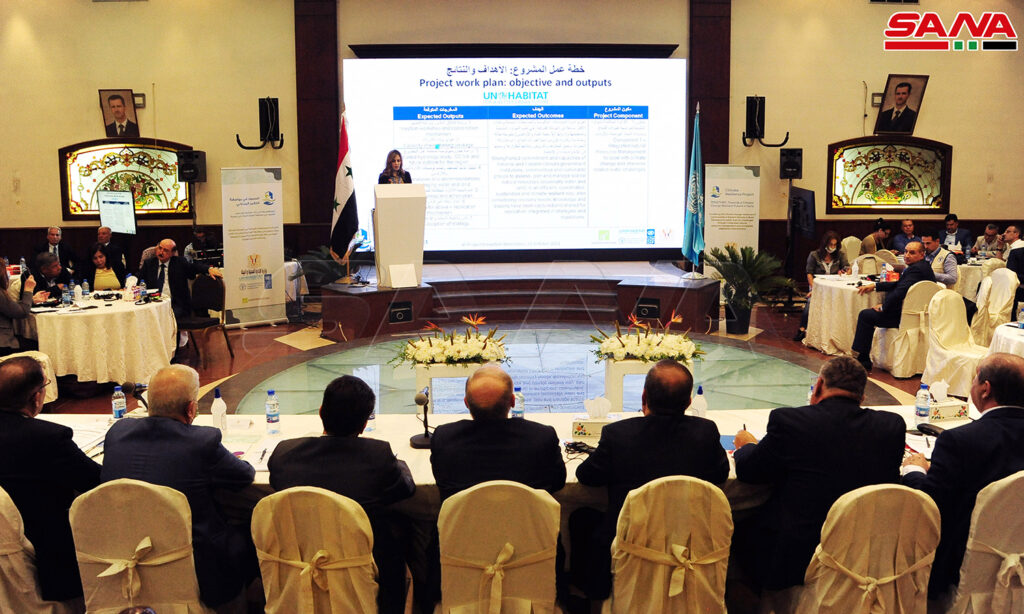The Syrian government has launched a project in Eastern Ghouta to address climate change and water shortages in collaboration with UN organizations.
On Monday, the official website of the “Presidency of the Council of Ministers explained that the project was launched during a workshop held on Sunday in the town of al-Malhiya in Rural Damascus. The water conservation project is being implemented by the Ministry of Local Administration and Environment of the regime in cooperation with the UN Human Settlements Program (UN-Habitat) and the UN Food and Agriculture Organization (FAO).
Other participants in the project include the Ministry of Agriculture and Agrarian Reform, the Ministry of Water Resources, and the Planning and International Cooperation Authority, along with local communities in Eastern Ghouta in al-Maliha, Zabadin, Deir al-Asafir, and Marj al-Sultan.
According to the Prime Minister’s Office website, the project aims to enhance the capacity of government institutions — as well as communities and the most vulnerable groups — to assess, allocate, and manage natural resources. In particular, the project focuses on managing water and land resources effectively and sustainably, capable of addressing climate change.
The project is supposed to improve the lives of some 80,000 people and provide “more sustainable practices” for the management of water, sanitation, land, and livestock, according to UN-Habitat head Ryan Knox, as quoted by the Prime Minister’s Office website.
This project is not the first time that the Syrian regime has received support for water sector projects, despite the United States’ imposition of the Caesar Act. These sanctions punish the regime and its collaborators — be they individuals, companies, or even states.
On September 23rd, the UAE announced that it would contribute support, technical assistance, and expert training for the rehabilitation and development of water systems and infrastructure in Syria
This article was translated and edited by The Syrian Observer.

